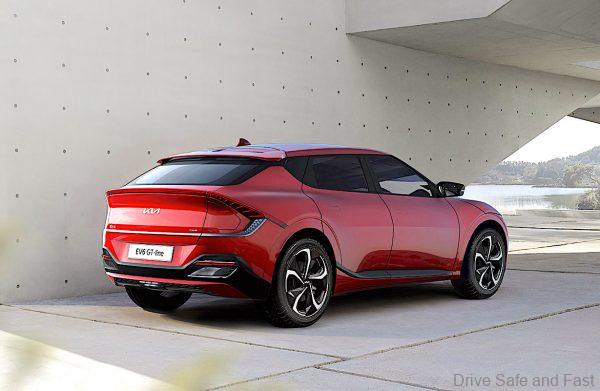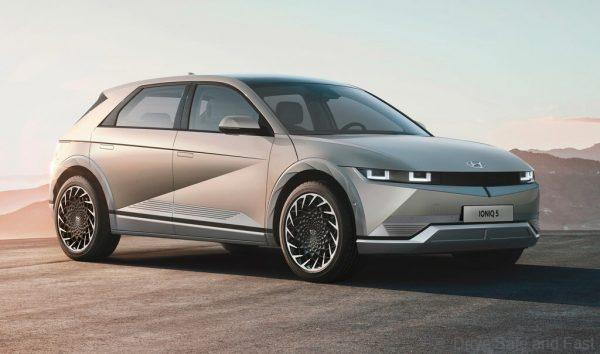The Hyundai-Grab strategic partnership gets strengthened for mass EV deployment in the region.
South East Asia is probably going to be one of the last regions on the planet to adopt electric vehicles in a massive way. Even in Singapore, companies like BYD have had electric vehicle taxi fleets scrapped in recent times. It’s just now a very feasible thing to do when there are so many other areas where public spending can go. But where there’s a problem, there is also an opportunity, and that is how the Korean auto giant Hyundai Motor Company sees it.

They will be further strengthening their partnership with Grab to solve this issue. This next phase of their partnership focuses on accelerating EV adoption in Southeast Asia, starting with Singapore, then moving on to Vietnam and Indonesia. Interestingly, Hyundai will be opening facilities in both Singapore and Indonesia soon.

This is not the first time a similar programme has been launched between the two companies. When they initially partnered up in 2018, they tried a few pilot projects involving EVs. This included the rollout of 200 Kona EVs in Singapore’s GrabRentals fleet. Grab driver-partners who used Hyundai electric vehicles were also given maintenance packages and customised incentives. In Indonesia, Hyundai IONIQ electric vehicles were used for GrabCar’s Elektrik fleet for airport runs.

This time around, the focused will be on EV feasibility to understand the gaps and barriers to wider EV adoption. They’ll then use this data to further develop the EV ecosystem in each market and suggest EV policies.

Here’s the press release with more.
PRESS RELEASE
Hyundai Motor Group and Grab Holdings Inc. (Grab) today announced an enhancement of their ongoing strategic partnership in mobility services. The next phase of the partnership will focus on accelerating EV adoption in Southeast Asia. The Group, including Hyundai Motor Company and Kia Corporation which are the Group’s affiliates, and Grab will further develop new pilots and initiatives that lower the barriers of entry for Grab driver and delivery-partners to adopt EVs, such as lowering the total cost of ownership and reducing range anxiety.
Survey results from initial EV pilot in Singapore found that high costs, lack of charging locations and long waiting times for charging are top barriers hindering Grab driver-partners from adopting EVs [1]. Hence, the enhanced partnership will focus on addressing some of these barriers by piloting new EV business models such as leasing EVs with a battery-as-a-service model or car-as-a-service model, and EV financing. Both parties will also develop a joint EV roadmap to accelerate adoption in Southeast Asia. The pilot programs will start in 2021, beginning in Singapore, and expand to Indonesia and Vietnam.
As part of the roadmap development, the two parties will also conduct an EV feasibility study. The intent is to gain a deeper understanding into the gaps and barriers to wider EV ownership and adoption, then translating the findings from the study into practical ways to further develop the EV ecosystem. These insights will provide governments and ecosystem partners with ideas and best practices on how EV policies can be shaped to better address the day-to-day operational routines of ride-hailing drivers and delivery-partners. This comes at a critical time as last-mile logistics and deliveries continue to experience unprecedented growth, and EVs can play a huge role in reducing carbon emissions from vehicles.
In addition, in line with Hyundai Motor Group’s latest future strategy, both parties will explore collaboration in new business opportunities and technologies such as smart city solutions.
Since the initial partnership was announced in 2018, both parties have launched a series of EV pilots in Southeast Asia, starting with Singapore in 2019 and Indonesia in 2020. The pilots saw the deployment of 200 Hyundai Kona EVs in Grab’s GrabRentals fleet in Singapore, which has consistently recorded a high utilisation rate. Customized maintenance packages and incentives were also rolled out to support Grab driver-partners who are renting the Hyundai EVs. In Indonesia, Grab launched its GrabCar Elektrik fleet of Hyundai IONIQ vehicles at Jakarta’s Soekarno-Hatta airport.
“Hyundai Motor Group and Grab were able to discover the possibility of EV businesses in Southeast Asia through our cooperation from 2018,” said Minsung Kim, Vice President of the Innovation Division at Hyundai Motor Group. “With Grab having the largest driver network in the region and Hyundai’s comprehensive mobility solutions, we are confident that together we can help to increase the adoption of EVs and ultimately reduce carbon emissions throughout the region. Beyond its on-going projects, the Group expects additional cooperation with Grab to be a key driver to lead the mobility market of the future in Southeast Asia.”
Russell Cohen, Group Managing Director of Operations, Grab, said: “While EVs are relatively nascent in Southeast Asia, Grab plans to play a vital role in working with partners and governments to accelerate EV adoption. As government EV policies and incentives are implemented and essential infrastructure like charging stations continue to be built, this partnership will provide insights and best practices on the usage of EVs as part of the day-to-day operations of driver and delivery-partners. For example, we’ve piloted ways to reduce driver-partners’ downtime by enabling them to swap their e-moped batteries at GrabKitchen while they wait to collect food orders. Successful EV adoption is a multi-stakeholder effort, particularly in Southeast Asia, and we’ll continue to leverage our technology and operational leadership to build a fleet for the future.”
Hyundai Motor Group has expanded its presence in Southeast Asia to foster new mobility innovation. The Group held a virtual groundbreaking ceremony for HMGICS (Hyundai Motor Group Innovation Center in Singapore) in October last year and construction is ongoing. The center will act as a testbed for a human-centered intelligent manufacturing platform with a small-scale EV production facility on site. The center also will explore new business concepts, including BaaS (battery-as-a-service) to enhance customers’ experiences of EV ownership.
The Hyundai partnership is part of a range of ongoing EV-related initiatives from Grab to support the EV goals of governments in Southeast Asia. In Singapore, Grab has a partnership with SP Group,the largest government-owned electricity and gas distributor in the country. Grab has leveraged driving data from this partnership to advise on ideal charging locations, based on driver locations and demand heatmaps. In Indonesia, Grab launched the Electric Vehicle Ecosystem Roadmap in 2019 with the Indonesia government to support EV policies, and help achieve the government’s target of 20% of Indonesian transportation being EVs by 2025.


